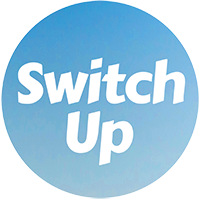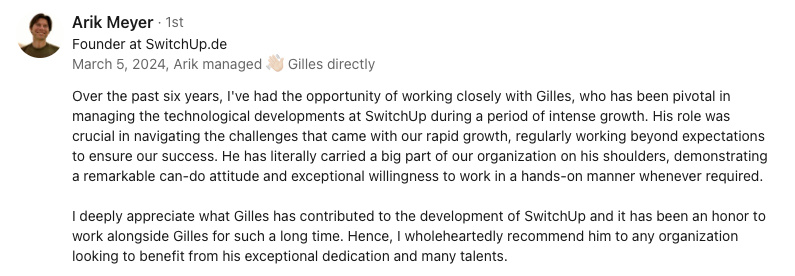Abstract:
The integration of mental health applications in the workplace is becoming a pivotal strategy for fostering employee well-being and enhancing productivity. These applications offer a range of tools designed to support mental health, from stress management to mindfulness exercises, and personalized mental health support. By providing on-demand access to these resources, companies can significantly improve work-life balance for their employees, leading to a more engaged and productive workforce. Moreover, the use of such apps can contribute to a culture of openness and support around mental health issues, reducing stigma and encouraging employees to take proactive steps towards their mental health. This trend is not only transforming the approach to workplace wellness but also setting a new standard for how companies prioritize the mental and emotional health of their employees.
Understanding workplace wellness apps
Companies are increasingly recognizing the importance of mental health and well-being in the workplace. As a result, there's a growing trend of integrating mental health applications into daily work routines. These apps are becoming essential tools in not only enhancing employee well-being but also boosting productivity levels.
By leveraging technology, these wellness apps make it easier for employees to manage stress, anxiety, and other mental health concerns. They offer a variety of features designed to support mental well-being, creating a healthier and more positive work environment. Additionally, they pave the way for a more engaged and productive workforce by addressing mental health proactively.
The significance of these tools cannot be overstated. As organizations strive to become more supportive and health-conscious, adopting mental health applications is proving to be an effective strategy. These tools help to foster an atmosphere where employees feel valued and supported, thus driving substantial improvements in overall work culture and efficiency. Companies are increasingly prioritizing such initiatives to maintain a happy and healthy workforce.
features and benefits of mental health apps
stress management techniques
Mental health apps are equipped with a multitude of stress management tools designed to help employees tackle daily pressures. Techniques such as guided meditations, deep breathing exercises, and progressive muscle relaxation are commonly featured. These tools provide users with a quick and accessible way to reduce stress levels, promoting a sense of calm and well-being. For instance, guided meditation sessions can last anywhere from five minutes to an hour, making it easy for employees to fit relaxation into their busy schedules.
mindfulness exercises
Mindfulness exercises are a cornerstone of many mental health applications. These exercises encourage employees to focus on the present moment, helping to reduce symptoms of anxiety and improve emotional regulation. Common mindfulness practices offered by these apps include body scans, mindful walking, and gratitude journaling. By incorporating these exercises into their routine, employees can develop a greater awareness of their thoughts and feelings, leading to improved mental clarity and focus.
personalized mental health support
One of the standout features of mental health apps is their ability to provide personalized support tailored to individual needs. Users often complete initial assessments that help the app determine the most relevant resources and recommendations. This personalized approach ensures that employees receive the most effective tools for their specific mental health concerns. Some apps also offer one-on-one sessions with licensed therapists or coaches, providing an added layer of support.
on-demand access to resources
The convenience of on-demand access cannot be overstated. Mental health apps allow employees to access resources whenever they need them, whether it's during a break at work or in the middle of the night. This flexibility helps employees integrate mental health practices into their daily lives seamlessly. Moreover, the ability to access support outside of traditional office hours is particularly beneficial for those who may not feel comfortable seeking help in person.
balancing work and personal life
Maintaining a healthy work-life balance is crucial for overall well-being. Mental health apps often include features that assist in achieving this balance. For example, many apps offer time management tools, reminders to take breaks, and tips for setting boundaries between work and personal time. By encouraging employees to prioritize self-care, these apps help prevent burnout and promote a healthier, more productive work environment.
- Case Study: Company A - At Company A, employees used a mental health app that featured daily mindfulness exercises and stress management techniques. Over a six-month period, the company saw a 30% reduction in reported stress levels among employees. Additionally, feedback indicated a noticeable improvement in overall job satisfaction and engagement.
- Case Study: Organization B - Organization B integrated a mental health app with personalized support options. Employees had access to on-demand therapy sessions and stress-relief exercises. Within a year, the organization noted a 25% decrease in sick days taken due to stress-related issues and an increase in overall productivity.
These real-life examples highlight the significant benefits that mental health apps can offer. By providing employees with accessible, personalized mental health support, companies can foster a more positive and productive work environment. As more organizations recognize the importance of mental well-being, the adoption of these applications is likely to continue growing, benefiting both employees and employers alike.
impact on workplace culture and productivity
The influence of mental health apps on workplace culture and productivity is profound and multi-faceted. By promoting an environment where mental health is openly discussed and prioritized, these apps help to cultivate a culture of support and understanding. This openness reduces stigma, making it easier for employees to seek the help they need without fear of judgment. For many, this represents a significant shift from traditional workplace norms, where mental health issues were often ignored or inadequately addressed.
creating a supportive environment
The use of mental health apps in the workplace contributes to creating a supportive environment where employees feel comfortable discussing their mental well-being. This shift helps to normalize conversations around mental health, encouraging employees to share their experiences and seek assistance when needed. By fostering such an atmosphere, companies demonstrate their commitment to employee well-being, which can lead to increased morale and loyalty.
reducing stigma around mental health
One of the key benefits of implementing mental health apps is the significant reduction in stigma associated with mental health issues. These apps provide a safe and private way for employees to access resources and support, helping to break down barriers and misconceptions. When employees observe that their organization is taking active steps to support mental health, they are more likely to engage in self-care practices and encourage their peers to do the same.
encouraging proactive mental health care
Mental health apps enable employees to take proactive steps toward managing their mental well-being. Whether it's through daily mindfulness exercises, stress management techniques, or on-demand therapy sessions, these tools empower employees to prioritize their mental health. This proactive approach not only benefits individual employees but also contributes to a more resilient and harmonious workforce.
long-term benefits of a healthy workplace culture
Developing a culture that values and supports mental health has long-term benefits for both employees and employers. When employees feel supported, they are more likely to be engaged and committed to their work. This increased engagement can lead to higher productivity levels and improved overall job performance. Additionally, a supportive workplace culture can contribute to lower turnover rates, as employees are less likely to leave an organization that prioritizes their well-being.
Moreover, businesses that foster a positive mental health culture often see a reduction in absenteeism and presenteeism. Employees who feel mentally healthy are more likely to be present and productive during work hours. By addressing mental health issues proactively, companies can mitigate the negative impact of stress, burnout, and other mental health challenges on their workforce.
setting a new standard for corporate wellness
The integration of mental health apps into workplace wellness strategies is setting a new standard for corporate wellness. Organizations that adopt these tools are not only enhancing the well-being of their employees but also positioning themselves as leaders in the field of employee health and wellness. This forward-thinking approach can attract top talent, as job seekers increasingly prioritize employers who demonstrate a commitment to mental health.
The trend towards incorporating mental health apps signifies a shift in how companies view their responsibilities towards their employees. It's no longer enough to provide basic health benefits; employees now expect comprehensive wellness programs that address mental as well as physical health. By meeting these expectations, organizations can create a thriving, productive, and engaged workforce.
Ultimately, the broader impact of mental health apps on workplace culture and productivity cannot be underestimated. These tools are transforming how companies approach mental health, leading to more open, supportive, and healthy work environments. As these trends continue to evolve, they are likely to become an integral part of corporate wellness strategies, benefiting both employees and employers in the long run. By embracing this change, organizations can foster a workplace culture that promotes well-being, reduces stigma, and enhances overall productivity.
You might be interested by these articles:
- Boosting Office Morale with Mental Health Apps
- Enhancing Work-Life Balance with Mental Health Apps
- How data-driven mental health apps are reshaping wellness





